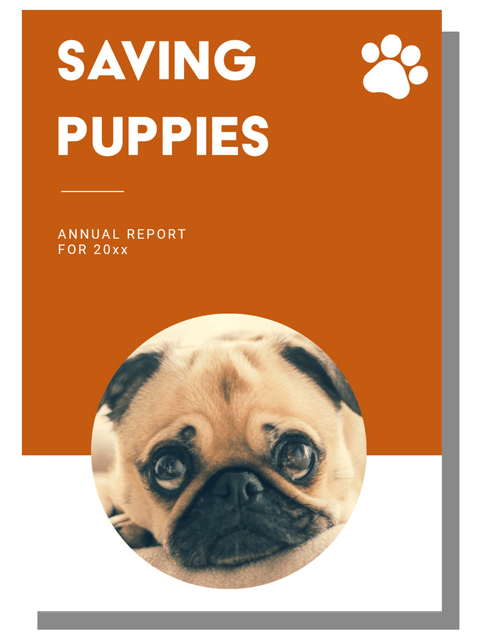5 Things to Know About Your Online Waivers


Online waivers are a simple way to strengthen your nonprofit events and ensure your staff, volunteers, and guests can enjoy themselves. Incorporating online waivers into your fundraising events help protect your organization, inform your community, and easily organize guest information.
In this article, we’ll discuss some of the key things to know about online waivers when preparing them for your nonprofit’s next event. Let’s jump in!
In the long run, we recommend partnering with a nonprofit accountant who can work with you to apply these aspects of accounting to meet your organization’s specific needs. But the tips and best practices below will help you get started with managing your nonprofit’s finances more effectively. Let’s dive in!
Online Waivers Allow for Release of Liability
Online waivers can help your organization protect itself, as well as your staff, volunteers, and the event space you’re using. Having all guests, employees, and volunteers complete waivers for the activities that make up your event can help every attendee understand their responsibilities and what health and safety risks they can expect for an upcoming event.
By informing guests and workers of what to expect and having them sign that they understand the risks they’re taking on, you pass responsibility and liability to the signee.
Including an online waiver during registration makes it easier for guests to plan accordingly if they are unsure about any risks they might not want to take.
Most people take great care when it comes to waivers, making them a good opportunity to highlight any important activities that they will be taking part in. Depending on what your event may entail, this may either excite guests or give them the opportunity to reconsider their participation in the event.
FREE Peer-to-Peer Communications Plan
Use this guide to understand the types of emails needed to recruit, activate, engage and retain your P2P fundraisers!
Online Waivers Increase Accessibility
Online waivers allow for greater accessibility when it comes to registering for an event. Some individuals may have disabilities that can make reading or filling in a paper form on the day of an event difficult.
With online waivers, these individuals will be able to review the document ahead of the event in their own time. This can help reduce stress and provide a more accessible opportunity for individuals to review the waiver.
Online Waivers Are Widely Shareable
Because online waivers and signed copies are stored electronically, they can also be distributed electronically. Waivers can be shared in several ways to make it more likely to obtain guest signatures. Here are a few methods for sending them out:
- QR code. Make a QR code linked to your online waiver on marketing materials like flyers, social media posts, or newsletters.
- Email. Send an email to guests with the link to your online waiver after they register for your event.
- Text Message. Text your guests to remind them to sign your online waiver prior to the event.
- Mobile kiosks. Some online waiver providers, like Smartwaiver, have mobile apps that can enable you to have your guests sign waivers via an on-site tablet kiosk.
With online waivers your organization will have more options to share the form to help your guests complete it prior to the event.


Use this FREE Guide to Write a Comprehensive Nonprofit Annual Report
We’ve created a guide, checklist, and customizable template to make the Nonprofit Annual Report writing easier for you.
Different Activities Require Different Waivers
Online waivers can help you conveniently and quickly create waivers for any type of event. Most online waiver providers include several waiver templates to choose from, meaning you can easily select and edit the template that best fits your events.
Here are some common activities you may need to create waivers for:
- Sports and other physical activities. Sport tournaments, races like 5Ks, and competitive games can have unexpected injuries, so it’s imperative to have participants sign a sports waiver.
- Food. If participants may be exposed to possible food allergens, this is important to state in waivers so individuals with sensitivities can prepare.
- Photo release. Photographing your event can be useful for subsequent marketing materials, but it’s always safe to secure guest permission prior to taking their photo, especially if minors will be attending your event.
- Volunteer waivers. Volunteers may be tasked with physical activities like lifting heavy objects, prolonged standing, or serving meals. A volunteer waiver helps them understand their role prior to committing.
If your nonprofit frequently hosts events, then you can customize and save your online waiver templates all in one place. By organizing your waivers all in a central location, you’ll be able to easily find the type you need later on.
Data From Online Waivers Can Be Used for Marketing
By using online waivers, you can streamline data collection and stay organized before and after events.
Because an online waiver can be completed alongside registration, your organization will also be able to reduce wait time for guests and your employees at your event entrance. In addition, you’ll cut down on printing costs and won’t need to scramble to collect a paper waiver from every attendee before the event can begin. And since all guest information is entered electronically, you won’t have to worry about any human error or manually entering guest information into your donor management system.
Fundraising events bring various supporters together like volunteers, supporters, and prospective donors. By collecting their information via online waivers, you’ll be able to send follow-up communications about the event or your organization and encourage them to deepen their relationship with your mission.
Because waivers are a legal agreement, it’s always best practice to collect information such as:
- Full names
- Phone number
- Email address
- Preferred form of contact
With online waivers, you can also customize what information is required and optional. Using optional information boxes, like asking for information about how they heard about your event or if they’d like to receive email newsletters, can be helpful to collect as well. After collecting this information, you can add it to your donor database and send a follow-up email thanking guests for completing the form along with exclusive event, programming, or campaign information.
Online waiver providers can streamline the entire waiver process by empowering you to leverage pre-generated waiver templates, organize your waivers, and save signee data.
Online waiver providers can also make online forms that are easily accessible and shareable through a variety of formats like links, website embeds, QR codes, and more. Now that you know the ins and outs of online waivers, you can get started choosing your provider today!


About the Author:
Daryl McCarl, Director of Business Development at Smartwaiver
Daryl McCarl is the Director of Business Development at Smartwaiver, the leading digital waiver service trusted by thousands of organizations around the world.





